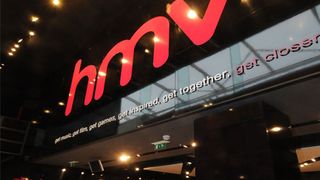
The world of tech is full of highs and lows: no sooner were we talking about the highlights of CES 2013 than we were mourning the demise of two high street institutions.
The music, video and games chain HMV has gone into administration, and so has Blockbuster UK.
The internet is partly to blame - as Blockbuster was shutting its doors, streaming service Lovefilm announced deals to bring The Office US and 30 Rock to UK customers. But there are other factors too: as Gary Marshall explains, retailers are up against "the rise of downloading, both legal and illegal; pressure from loss-leading supermarkets and tax-avoiding, subsidy-chasing online retailers; people shopping in suburban retail parks rather than on the high street; rising rents and other costs; people choosing to spend their disposable income on other things... it's a long list, death by a thousand cuts."
Clothing aside, the high street is "where you go to look at the stuff you'll order online later," Marshall says. "Maybe we need to talk about this, because the money's moving out of the high street at an increasing rate."
That means "more people looking for work, fewer people paying tax, and less money going to HMRC's coffers because businesses made of clicks are a damn sight harder to tax than businesses made of bricks."
Facebook ups its game in search
One of the businesses made of clicks is Facebook, which paid a whopping 0.138% tax in the UK last year. Because much of the money on the internet involves advertising and most of that goes to Google, Facebook has decided it's time to drive a great big tank onto Google's lawn. The tank is called Graph Search, and if it takes off we'll be sharing significantly more data with significantly more people than ever before - and spending considerably less time carrying out traditional web searches.
As Dan Grabham explains: "Graph Search is a new way for you to find people, photos, places and interests that are most relevant to you on Facebook. You'll be able to find others even though you may not know their name, as well as learn more about them and make connections. What's more, you can explore photos, quickly find places like local attractions and restaurants, and learn about friends' common interests such as music, movies and books."
Get daily insight, inspiration and deals in your inbox
Get the hottest deals available in your inbox plus news, reviews, opinion, analysis and more from the TechRadar team.
"Are you going to wonder how you ever lived without it? Let's find out," says Kate Solomon. Her in-depth report discovers how it works, what sort of results you're likely to get and where the flaws are, and she concludes that it's great if you're "a fan of categorising your friends into specific groups, perhaps arranging some kind of Venn diagram to show overlapping interests and then dividing them into ruthless hierarchies" or if "you're a fanatical Facebook stalker of people you vaguely know."
For everyone else "we're not sure how much use it's going to get beyond the occasional search for something specific when all else (Google) fails."

Graph Search needs data - lots of data, says Gary Marshall. Lock up your datas! Facebook "wants to know what you buy, what you listen to, what you like and where you go, and it wants to share that information with everyone."
The privacy implications are quite serious: "Imagine the searches predators, bigots and other fun people might use the Social Graph for."
The fundamental problem, Marshall says, is that "Facebook is awfully good at the whole 'Oopsie! Did we accidentally bump into your privacy settings and make all your private stuff public again? Man, we're always doing that! We're such klutzes!' thing." It's "not the kind of behaviour that makes you trust a company."
The TechRadar hive mind. The Megazord. The Voltron. When our powers combine, we become 'TECHRADAR STAFF'. You'll usually see this author name when the entire team has collaborated on a project or an article, whether that's a run-down ranking of our favorite Marvel films, or a round-up of all the coolest things we've collectively seen at annual tech shows like CES and MWC. We are one.
